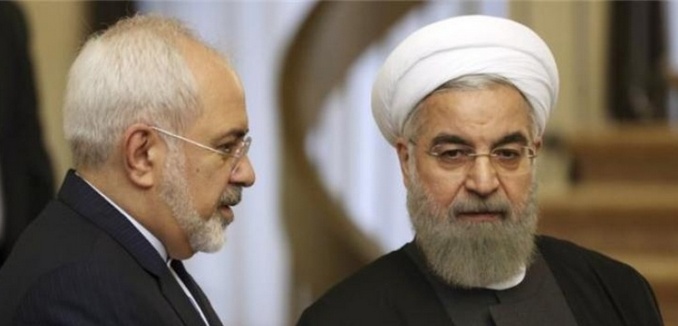Iranian President Hassan Rouhani rejected the resignation of Foreign Minister Mohammad Javad Zarif, who is now back on the job, The Washington Post reported Wednesday.
According to reports, Zarif, who is often described as a moderate, submitted his resignation after a series of perceived slights, including his exclusion from a meeting with Syrian dictator Bashar al-Assad earlier this week. Other senior regime officials, including Rouhani, Supreme Leader Ayatollah Ali Khamenei, and Islamic Revolutionary Guard Corps-Quds Force commander Gen. Qassem Soleimani greeted the Syrian dictator.
However, Rouhani rejected Zarif’s resignation, saying that it would be “against national interests” to accept it.
“I appreciate the support of the people of Iran . . . especially in the past 30 hours,” Zarif wrote on his Instagram account, in a show of gratitude for Rouhani’s support. “As a modest servant, I have never had any concern but elevating the foreign policy and status of the Foreign Ministry,”
Behnam Ben Taleblu, a senior fellow at the Foundation for Defense of Democracies, told the New York Post‘s Benny Avni that Zarif’s resignation reflected growing fissures within the Iranian regime. “With factionalism rising more than ever before, the regime continues to struggle to present a unified front, as it faces pressure, both foreign and domestic,” he explained.
Avni pointed out that the divisions stem from massive inflation and an economy that is expected to experience 3.9 percent negative growth in 2019.
Elsewhere, Ben Taleblu observed that neither Rouhani nor Zarif has real power in Iran.
“Zarif and Rouhani have always been window-dressing for the Islamic Republic,” he told CNBC. “But such figures have a limited degree of utility for the Islamic Republic, which has used their pretense of moderation to deflect foreign pressure.”
It was subsequently reported that Assad invited Zarif to Damascus at an unspecified future date.
[Photo: IRNA ]




